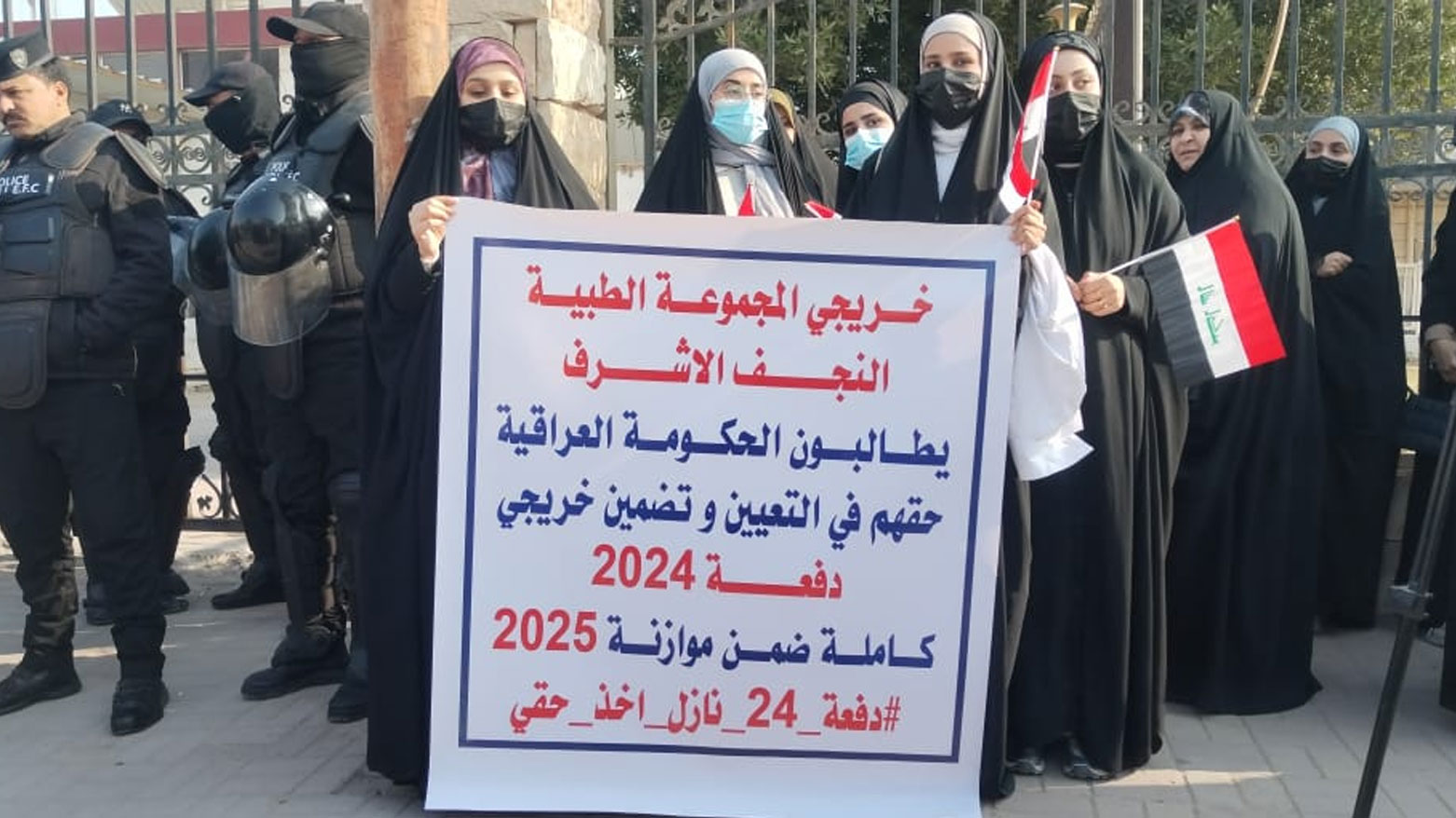Najaf Medical Graduates Demand Government Employment in 2025 Budget Protests
The protest arises amid ongoing concerns over unemployment among medical graduates, despite the Health Ministry’s announcement of reappointing specialist doctors and other medical staff.

ERBIL (Kurdistan24) – Dozens of medical graduates in Najaf province staged a protest on Monday, demanding their inclusion in government employment programs under the 2025 budget.
The demonstrators gathered in front of the Najaf Health Directorate, calling for immediate action from authorities to secure their appointments in the public health sector.
The protest comes amid ongoing concerns over unemployment among medical graduates, despite the Ministry of Health’s recent announcement of reappointing a first batch of specialist doctors, senior residents, internship doctors, and practicing physicians.
Protesters argue that while steps are being taken to address employment issues, thousands of qualified medical graduates remain without government positions, leading to frustration and uncertainty about their professional futures.
Government Framework for Medical Employment
The Ministry of Health’s decision to reappoint doctors is based on Civil Service Law No. 24 of 1960 (amended), Decision No. 220 of 2022, and Instruction No. 5 of 2002.
Additionally, it cites a directive from the General Secretariat of the Council of Ministers (Cabinet Affairs and Committees Department) under letter number (Sh.Z.L/10/8/32828), dated Feb. 16, 2024.
This directive aligns with the Iraqi Doctors’ Syndicate’s work paper and follows instructions from Prime Minister Mohammed Shia al-Sudani and Health Minister Salih Mahdi al-Hasnawi.
The Ministry of Health’s statement confirmed that official orders had been issued for the reappointment of the first batch of specialist doctors.
However, these professionals have been assigned the lowest grade as Junior Resident Doctors (Sixth Grade, Third Level) until job titles are updated following the completion of deletion and creation procedures in coordination with the Ministry of Finance and staff restructuring.
Uncertainty and Calls for Systemic Reform
Despite the reappointment efforts, medical graduates in Najaf and other provinces argue that the employment process remains slow and insufficient.
Many claim that the limited number of reappointments does not reflect the increasing demand for medical professionals across Iraq’s healthcare system, which continues to struggle with staff shortages and infrastructure challenges.
Protesters are calling for:
- The immediate inclusion of all medical graduates in the 2025 budget allocations for employment.
- A transparent and structured hiring process to ensure merit-based employment.
- Increased investment in healthcare infrastructure to accommodate the growing number of medical professionals.
- Collaboration between the Ministry of Health and Ministry of Finance to expedite bureaucratic processes preventing timely job placements.
The Bigger Picture: Iraq’s Healthcare Sector Struggles
Iraq’s healthcare sector has faced longstanding issues, including underfunding, outdated medical facilities, and administrative inefficiencies.
The COVID-19 pandemic exposed further weaknesses in the system, leading to calls for urgent reforms.
Medical professionals argue that Iraq’s reliance on foreign-trained doctors and private sector healthcare could be reduced if more local graduates were provided with stable employment opportunities within the public sector.